CVBF has significant experience as a coordinator of several international projects and participates as a partner in many research projects funded by the European Commission.
CVBF is always proactive in fostering collaboration and interaction with many scientific, clinical and policy stakeholders, facilitating the transfer of know-how achieved at different levels and leading to a strengthening of scientific excellence.
Thanks to its long-lasting experience in projects and initiatives CVBF enhanced networks of relevant stakeholders and collaborative partnerships.
Projects and initiatives
AMELIE (Anchored Muscle cELls for IncontinencE)
AMELIE is a 5-year collaborative research project funded by the European Union Framework Programme (Horizon 2020) that involves the collaboration of 13 organisations across nine countries to develop a novel Advanced Therapy medicinal product (ATMP) for Faecal Incontinence (FI). The project is coordinated by University College London (UCL).
Amelie Project is proposing a novel regenerative intervention using autologous skeletal muscle derived cells (ASMDC) to restore the function of the sphincter muscle. These cells will be attached to implantable microcarriers to improve cell delivery and engraftment in patients with FI. This will be tested in a randomised clinical trial. The strategy is expected to improve cell viability and increase the likelihood of muscle regeneration, contributing to improved continence.
If effective, treatment with the implantable cell-microcarrier technology will have a significant impact on EU citizens’ quality of life. Promotion of this treatment as a realistic approach for treating incontinence rather than managing symptoms, will increase the likelihood of patients with FI consulting a healthcare provider about their condition and thus increase the number of patients the treatment can reach.
CVBF activities include monitoring and site management activities across 7 sites (2 in UK and 5 in the EU) that will be involved in the project, regulatory submission for EU countries, support in site set-up and pharmacovigilance.
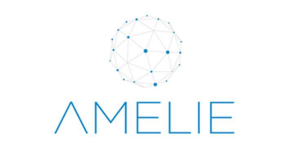
CloSed – Clonidine for Sedation of Paediatric Patients in the Intensive Care Unit
CloSed was a 5-year project funded under the Seventh Framework Programme (FP7) with an international Consortium comprising 10 European partners and coordinated by Assoc. Prof. Antje Neubert, University Hospital of Erlangen (UKER).
The project aimed to perform a multicentre and multinational paediatric clinical trial studying clonidine, a drug already used for sedation in Pediatric Intensive Care Units (PICUs) but not authorised in paediatric population. The ultimate goal is to make a parenteral age-appropriate formulation of clonidine available on the market for sedation in PICUs and to apply for a Paediatric Use Marketing Authorisation (PUMA). Furthermore, the CloSed project partners will use the findings of the clinical trial to develop and disseminate European consensus guidelines for sedation in critically ill newborns and children which will support all clinicians across Europe in their decisions.
CVBF was involved in the CloSed project as FGB (Fondazione per la Ricerca Farmacologica Gianni Benzi Onlus) Third Party and is in charge of Pharmacovigilance activities.
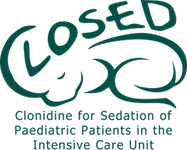
c4c – Collaborative network for European clinical trials for children
The “conect4children” (c4c), an IMI-2 project, is composed of 43 industrial and non-industrial partners with the aim to deliver high quality clinical trials in children and young people across all conditions and phases.
The c4c consortium aims to enhance the competitiveness of Europe as a critical region for developing medicines for children by using existing expertise, patient access and developing common processes to be applied to disease natural history studies, registries, studies of new therapies and comparisons of existing therapies.
The consortium is a novel collaboration between academic and private sectors that includes 33 academic and 10 industry partners from 20 European countries, more than 50 third parties and around 500 affiliated partners.
The six-year project, comprised of a multidisciplinary public-private consortium, brings together key stakeholders across academia and industry. It is a pioneering opportunity to build capacity for the management of multinational paediatric clinical trials across Europe whilst ensuring the voices of children, young people and their families are heard. Strong links with regulators will be established.
CVBF is involved in the WP5 “Data coordinating centre and data quality standards” and has a relevant role in the delivery of training and education within c4c network being involved in the WP6 “Network Research Personnel Education and Training” as well as in the communication activities of the WP8 “Communication, Dissemination, Exploitation and Impact Assessment”.
Finally, CVBF is member of the Cross-cutting theme in charge of the patients’ involvement in the project.
Find out more in the project website www.conect4children.org
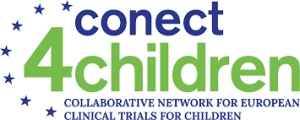
DEEP – DEferiprone Evaluation in Paediatrics
DEEP was a project funded by the Seventh Framework Programme of the European Commission, with the purpose to develop a new oral liquid formulation, suitable for children, of deferiprone (DFP) for the treatment of iron overload in paediatric patients affected by congenital anaemias, such as β-thalassaemia major (the so called “Mediterranean anaemia”) and sickle-cell disease (SCD), that require chronic transfusion therapy.
The Project included three studies aimed to evaluate the pharmacokinetics (DEEP-1 study), efficacy/safety (DEEP-2 study) and long-term safety (DEEP-3 study) of deferiprone in this specific patient population, in accordance with the Paediatric Investigation Plan (PIP) approved by the EMA Paediatric Committee (PDCO).
The DEEP Project provided the scientific evidence that the dosage per kilogram of DFP used in adults and older children can provide sufficient exposure to ensure efficacy also in younger children (DEEP-1 PK clinical trial that involved 21 patients under 6 years).
These results allowed children under the age of 6 years to be recruited in the safety/efficacy study (DEEP-2) that involved a total of 393 patients with the first patient first visit (FPFV) held in March 2014 and the last patient last visit (LPLV) in September 2017. This is the largest randomised trial in children with transfusion-dependent hemoglobinopathies comparing two oral chelating agents (deferiprone vs deferasirox) conducted so far, providing evidence to support the use of DFP in paediatric patients.
In addition, through the long-term observational safety study (DEEP-3) the nature and incidence of adverse effects of deferiprone in children and adolescents was evaluated. Started in 2013 and ended in October 2015, with 297 patients enrolled in the study, DEEP-3 confirmed that the safety profile of DFP in children and adolescents is in accordance with the available data in adults.
On the basis of the above-mentioned findings, a Paediatric Use Marketing Authorisation (PUMA) for the new formulation of deferiprone has been submitted by the commercial partner of the project (ApoPharma Inc., which also provided financial support for the continuation of the project).
During the project particular attention has been payed to the development of age-tailored informative tools addressed to the children involved in the studies.
Find out more in the project website.
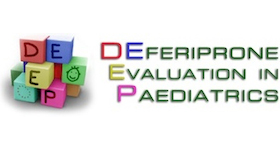
European Joint Programme on Rare Diseases
The Special Issue “CVBF Active Involvement in the EJP RD“, brief and extended versions, are available here.
The main objective of the European Joint Programme on Rare Diseases (EJP RD) is to create a research and innovation pipeline “from bench to bedside” ensuring rapid translation of research results into clinical applications and uptake in healthcare for the benefit of patients.
In addition, the programme is aimed to improve integration, efficacy, production and social impact of research on rare diseases through the development and promotion of sharing of research and clinical data, materials, processes, knowledge and know-how, and through an efficient model of financial support for research on rare diseases. The number of participating countries is 35 including 27 EU Member States (Austria, Belgium, Bulgaria, Czech Republic, Denmark, Estonia, Finland, France, Germany, Greece, Hungary, Croatia, Ireland, Italy, Netherlands, Latvia, Lithuania, Luxembourg, Malta, Poland, Portugal, Romania, Spain, Sweden, Slovakia, Slovenia, United Kingdom), 7 Associated Countries (Armenia, Georgia, Switzerland, Israel, Turkey, Norway, Serbia) and 1 non-EU Country (Canada). So far, the project brings over 130 institutions including research-funding organization, ERNs (European Reference Networks), European research infrastructures.
The programme is divided into four main Pillars: Funding of research, Coordinated Access to data and resources, Capacity Building, Accelerated translation of research projects and improvement outcomes of clinical studies. Moreover, the following transversal activities are foreseen by the programme within Pillar 0: Integrative Research Strategy, Communication, Sustainability, Ethical, legal, regulatory and IPR issues.
The project sees the participation of CVBF that brings the paediatric competences and expertise within work package 19 aimed to support the Rare Diseases (RD) community to more effectively translate high quality research into high impact interventions for the RD patient community, by creating a bridge between basic research and medical innovation, otherwise known as the “bench to bed-side” approach. To this aim, self-help resources and active project mentoring and technical support is provided to selected projects and CVBF contribute to provide paediatric self-help resources paying particular attention on paediatric projects to be assessed and supported within these activities.
Moreover, CVBF is involved in the monitoring process aimed to evaluate the quality of the EJP RD activities and the achievement of the expected project goals during the hole duration of the project based on the periodic analysis of proper indicators such as Key Performance Indicators (KPIs) and Key Result Indicators (KRIs).
Find out more in the EJP RD website.
CVBF activities in EJP RD
Creation of the Innovation Management Toolbox, a virtual library to provide self-help resources that is openly accessible to the RD research community, to be utilised by the WP partners and Innovation Managers to implement documents and guidance for projects supported within the EJPDR project itself. The toolbox includes technical guidance (such as target validation techniques, use of molecular imaging for drug development, patient confidentiality and data handling, animal welfare, biorepositories, plus intellectual property management and contract templates), a project management manual, and regulatory guidance. Particular attention to regulation and resources to promote translational research in the paediatric field is given by CVBF.
Find out more about the IMT here.

EPIICAL – Early treated Perinatally HIV Infected individuals: Improving Children’s Actual Life
EPIICAL was a 4-years (2016-2020) project funded by ViiV Healthcare U.K. (ViiV), and aimed to evaluate strategies to optimise the management of perinatally HIV-infected children and to establish a predictive in vitro and in vivo platform to inform treatment strategies leading to HIV remission. The treatment strategies may include combination antiretroviral therapy (cART) as well as Novel Disease Modifying Therapies (NDMTs). These goals will be achieved through the creation of an innovative research platform developed from in vitro and in vivo proof of concept studies using the model of early treated HIV-infected children population. To validate this predictive platform, new immunological, virological and transcriptomic profiles of viral control in children will be generated with data obtained from well-established cohorts/studies of early treated HIV-infected children around the world (both observational cohorts and clinical trials cohorts). Within the project framework, through its member Gianni Benzi Pharmacological Research Foundation, CVBF provides support in managing ethical, regulatory and legal issues on the secondary use of data and samples and is in charge of the preparation of submission packages for EPIICAL proof of concept study, as required by applicable international/European/national laws.
Find out more in the project website.
![]()
EPTRI – European Paediatric Translational Research Infrastructure
EPTRI is a new research infrastructure with the aim to speed up and promote the paediatric research in the field of discovery and development of paediatric drugs focusing on basic, preclinical, and translational research in the field of drug discovery, paediatric biomarkers and biosamples, developmental pharmacology, paediatric medicines formulations, medical devices and advanced therapies.
EPTRI has just entered in the Preparatory phase to reach its legal, financial and technical maturity, and is composed of more than 100 Institutions from 25 Countries, organising themselves in National Nodes and acting as service providers.
EPTRI is following its process of creation of the EPTRI-ERIC that will take some time. Meanwhile, to be able to undertake several actions as a legal entity, such as to participate in EU funded calls, apply for inclusion in public-private partnerships, Associations and Networks, it is creating an international non-profit organization under the Belgium law, called AISBL – Association internationale sans but lucrative.
EPTRI will provide three types of services:
- Centralised services, which are: access to Document Repository and e-Libraries, scientific advice on preclinical and translational research, advice on translation to clinical phases, service for scouting of research funding opportunities, training and education;
- Integrated services, provided by the research units and managed within the Thematic Research Platforms;
- Common services, in collaboration with other biomedical RIs (to be defined).
EPTRI will bring a positive impact on the scientific community, by integrating the different research units within the new establishing RI, so to increase the scientific relevance of the paediatric research at international level.
EPTRI will bring together scientists, researchers, regulators, and industry to support smarter paediatric medicines development in an atmosphere of innovation and collaboration for the benefit of the patients, the life science, the economy and ultimately the society. It will also benefit children’s and future generations’ health as it will establish the framework to speed-up the drug development process in paediatrics including the top-level research innovations.
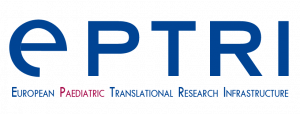
ERAMET (Ecosystem for RApid adoption of modelling and simulation METhods)
ERAMET is a European Project, coordinated by the University of Namur with the participation of 16 other partners located in Belgium, Norway, the United Kingdom, Italy, Spain, France, and the Netherlands.
The overall objective of ERAMET is to provide an integrated approach for developers and regulators’ decision-making for paediatric and orphan drugs, centred on the drug development questions. This will constitute a transparent ecosystem for drug development and assessment, that will facilitate the adoption of Modelling and Simulation (M&S) methods and related data types (including real word data such as registries and electronic healthcare data).
The ecosystem proposed by ERAMET will be based on three pillars:
(1) A repository connecting drug development questions, context of use for different data type and related analytical methods.
(2) The development and validation of high-quality standards for data searching, and analytical methods. These will cover as analytical methods: computational M&S, digital twins, Artificial Intelligence (AI), hybrid approaches, standard statistics and pharmacometrics, and alternative data types and sources such as: Real-World Data (RWD), eHealth data, registries, historical regulatory submissions, scientific and (non)clinical trials.
(3) An AI-based platform that will automate and optimise the data collection, formatting and M&S analysis and implement the credibility assessment.
As part of ERAMET, the ecosystem will be applied to five use-cases including paediatric extrapolation and characterisation of drug benefit/risk in 4 groups of rare diseases, namely ataxia, transfusion dependent haemoglobinopathies, bronchopulmonary dysplasia, and degenerative neuromuscular.
Each of the use-case is planned to lead to submission and regulatory approval of at least one validated M&S tool via the EMA qualification procedure.
Training will be proposed to familiarise regulatory assessors, drug developers and clinical researchers with this new approach.
CVBF is providing an important contribution as we will provide the expertise to enable the adoption of M&S techniques gained with DEEP (DEferiprone Evaluation in Paediatrics), which aimed to study the efficacy and safety of deferiprone in children affected by β-thalassemia and other transfusion dependent haemoglobinopathies.
For more information, visit: https://deepproject.cvbf.net/

European Rare Diseases Research Alliance (ERDERA)
The European Rare Diseases Research Alliance (ERDERA), is an ambitious and far-reaching European Project, coordinated by “Institut National de la Santé et de la Recherche Médicale” (INSERM), aiminig to improve the health and well-being of the 30 million people living with a rare disease in Europe, through better prevention, diagnosis and treatment. Its overarching goal is to make Europe a world leader in Rare Disease (RD) research and innovation.
One of the key strengths of ERDERA lies in its ability to structure goal-oriented public-private collaborations targeted at interventions all along the R&D value chain. This collaborative approach aims to expedite the journey from knowledge to patient impact, thereby optimizing the EU’s innovation potential in the field of rare diseases.
To support its ambitious mission, ERDERA has been designed as a comprehensive and integrated ecosystem encompassing three main parts: (i) funding, (ii) an internal (in-house) Clinical Research Network that implements research activities targeting clinical trial readiness of RDs and accelerating diagnosis and translation of research discoveries into improved patient care, and (iii) related supporting services (Data, Expertise, Education and Training) as well as an acceleration hub that serves both external and internal RD communities. All these components are supported by an all-embracing coordination and strategy, as well as foundational (inter)national alignment.
ERDERA boasts an impressive network of 171 participants, showcasing its global reach and commitment to addressing rare diseases on an international scale, with CVBF involved in key work packages.
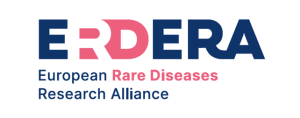
GAPP – GAbapentin in Paediatric Pain
The GAPP (GAbapentin in Paediatric Pain) project, funded by the Seventh Framework Programme of the European Commission, was intended to improve the therapeutic perspectives of children who suffer from chronic pain, providing them with a drug, gabapentin, which seems to be effective and safe, as already demonstrated in adults, and which was included in the European priority list of off-patent paediatric medicines worthy of research grants.
A comprehensive development strategy has been put in place including a new paediatric formulation, a non-clinical study and two clinical trials. Such strategy was agreed with the Paediatric Committee (PDCO) at the EMA in January 2013 and in July the GAPP Project officially started. During the course of the project a new formulation was developed, a juvenile preclinical study was conducted and the two clinical studies were formally activated in all recruiting centers. In July 2017, the project officially terminated, but the trials were not yet concluded. Due to the strong interest and commitment of the Parties, and in particular of the studies’ Sponsor (PHARM srl), it was decided to take over the continuation of the GAPP studies through a fund raising.
At the end of the project and on the basis of the study results, an application for a Paediatric Use Marketing Authorisation (PUMA) for the treatment of chronic pain in children both as monotherapy and as adjuvant therapy will be submitted by the commercial partner of the approved Project.
Find out more on the project website.

ID-EPTRI – European Paediatric Translational Research Infrastructure
The ID-EPTRI (European Paediatric Translational Research Infrastructure) project, coordinated by CVBF, was funded by the European Commission under the INFRADEV-01 call with the aim to design the framework for a new Research Infrastructure (RI) aimed to enhance technology-driven paediatric research in drug discovery and early development phases to be translated into clinical research and paediatric use of medicines.
The starting point of the project was the serious lack of medicines for children in EU and worldwide as well as the lack of a developmental model for paediatric medicines that integrates technology-driven aspects with the methodological, ethical and regulatory framework.
The ID-EPTRI project involved 29 partners from 21 EU and non-EU countries, including established RIs, non-profit research organisations, top-level universities, scientific and clinical centers of excellence.
During the ID-EPTRI project (2018-2020), the EPTRI concept has been designed and tested and has allowed to create the base for research excellence that is the added value of the EPTRI proposal. The scientific concept of EPTRI was tested and found feasible through different actions: a) the scientific community survey (259 respondents and more than 300 research units identified); b) the users survey (337 respondents from clinical researcher centres, regulatory, industry, other researchers; c) the scientific feasibility studies including 10 studies with scientists; d) the stakeholders consultation; e) the Governments consultation; e) the final virtual stakeholders’ roundtable on July 9th, 2020 to present the final outcomes of the EPTRI design phase and to discuss its feasibility.
EPTRI has been designed as a distributed RI according to a Hub and Spoke model, with a Central Management Office (CMO), a Single Access Point (SAP) interconnected with specific Thematic Research Platforms and several National Nodes.
The following four TRPs have been created grouping RUs in each specific scientific domain and able to act as providers of cutting-edge services that are unique for paediatric research on medicines setting:
- PAEDIATRIC MEDICINES DISCOVERY dedicated to basic research and preclinical studies to identify molecular targets to paediatric disease on models reproducing specific paediatric ontogenetic stages;
- PAEDIATRIC BIOMARKERS AND BIOSAMPLES focused on the organisation of paediatric samples collection and the identification, characterisation and validation of paediatric biomarkers;
- DEVELOPMENTAL PHARMACOLOGY devoted to the identification and application of ad hoc innovative methods to study paediatric pharmacological variability due to ontogeny;
- PAEDIATRIC MEDICINES FORMULATIONS devoted to performing pre-formulation and formulation studies from preterm neonates to adolescents.
Visit the project website www.id-eptri.eu

OrphaDev4kids (Orphan Device for paediatric patients: a unique platform providing innovative services)
The OrphaDev4kids is an ambitious European Project coordinated by CVBF and with the participation of other seven partners, aims at addressing the significant challenges faced in the development of orphan Medical Devices (MDs) for the paediatric population. Children differ from adults in various aspects, such as size, growth, development, body composition, and disease features, which make the development of paediatric MDs a complex and risky endeavor for developers. Consequently, only a small number of approved MDs are available, with few specifically designed for children and others adapted from adult applications.
Throughout the project’s lifespan, users in need of dedicated services will have access to a comprehensive range of offerings. These include advice, mentoring, and assistance in managing the development of prototypes and final paediatric and orphan MD products. This encompasses various aspects, such as MD design, quality, non-clinical and clinical studies, performance evaluation, and post-marketing evaluation (safety monitoring and Health Technology Assessment).
Additionally, the project will provide regulatory, ethical, and privacy (GDPR) advice for experimental studies, marketing, and commercialization, including CE certification and Marketing Authorization (MA). Tools will also be available to match relevant players with orphan device ideas with potential manufacturers, identify existing financing resources, and implement direct knowledge on MD certification and MA procedures in Europe.
One of the specific objectives of the project is to address the issue of orphan MDs especially for paediatric use with a focus on an unmet therapeutic need area, that are particularly left behind and/or pose major problems for developers and sponsors, by developing three orphan and paediatric case studies, one dealing with osteogenesis imperfecta and 2 concerning neonatal cardiology area, both referring to Cyanotic Congenital Cardiac Diseases. The three cases were identified in the inventory of research and needs, already collected within EPTRI as applied by two academic research group and a SMEs, willing to develop new MDs in need of MD experts’ contribution.
PedCrin
The Paediatric Clinical Research Infrastructure Network (PedCRIN) is a EU-funded project aimed to bring together the European Clinical Research Infrastructure Network (ECRIN) and the founding partners of the European Paediatric Clinical Trial Research Infrastructure (EPCT-RI) to develop capacity for the management of multinational paediatric clinical trials.
It arises from the awareness that more clinical trials are required to address specific needs of the paediatric population. Children do not often receive appropriate treatments since many medicinal products have not been adequately tested or authorised for them. Moreover, the paediatric population often responds to drugs and other therapeutics differently than adults do.
There are several scientific and operational challenges for conducting paediatric clinical trials. Additionally, non-commercial trials have to face many difficulties, e.g. lack of funding, inadequate infrastructure and lack of platform to facilitate collaboration and discussion.
The aim of PedCRIN is, therefore, to develop the necessary tools and capacity to enhance the quality, safety, efficacy and ethical standards of multinational, non-commercial paediatric clinical trials.
CVBF, as partner in collaboration with the TEDDY Network, will be responsible for the creation of tools specific for paediatric trials or for the upgrade of tools and databases, already developed by ECRIN for adult trials, to take into consideration paediatric specificities.
One of the main initiatives of the project is the launching of a call supporting the multinational extension of paediatric studies on medicinal products having already secured funding in the coordinating country and to select, based on scientific excellence and evidence for feasibility, multi-national investigator-initiated paediatric or neonatal interventional clinical studies on medicinal products.
More information on PedCRIN are available in the project factsheet and in the project website.

SPOKE 7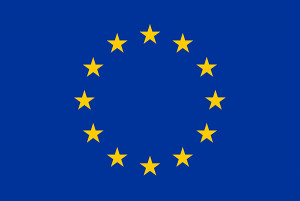
Spoke 7 is one of the eight spokes of the National HEAL ITALIA Foundation, an organization established with funding from the Ministry of University and Research under the PNRR. Its aim is to generate new scientific knowledge and transfer it into the healthcare sector, thereby facilitating early diagnosis and targeted therapies in the fight against rare diseases.
Spoke 7 is designed to more accurately predict which prevention strategies and interventions will be effective for specific diseases. It will contribute to the development of public health recommendations for targeted subgroups based on phenotype, genotype, and exposome. The proposed research is focused on identifying the determinants of individual risk for developing high-impact diseases—such as cardiovascular, oncological, or endocrine-metabolic disorders—that significantly affect population health.
The leadership of Spoke 7 is provided by the Polytechnic University of the Marche in Ancona, with the following affiliated institutions:
- Istituto Superiore di Sanità
- University of Catania
- University of Modena and Reggio Emilia
- University of Foggia
- La Sapienza University of Rome
- University of Bologna
- University of Cagliari
- Istituti Fisioterapici Ospitalieri (IFO)
- Regina Elena National Cancer Institute (IRE)
CVBF was awarded the cascade call issued by Spoke 7 to support activities related to patient data within the framework of clinical research, as part of the project titled “Hub for the Coordination and Conduct of Clinical Studies.”
The overarching objectives of the project are to reduce administrative and bureaucratic burdens in clinical research while enhancing researcher efficiency through the following initiatives:
- Data Management: Optimizing the collection and management of information.
- Clinical Studies: Simplifying and reducing the administrative load for investigators regarding both observational and interventional studies.
- Costs and Timelines: Decreasing costs and accelerating the implementation of studies.
These goals will be achieved by providing specific tools and services, including:
- A robust support infrastructure for conducting clinical studies.
- Advanced data management technologies.
- Comprehensive training and technical support for researchers.
The specific objectives include:
- Delivering complete and integrated support for clinical research to facilitate significant advancements in health and precision medicine.
- Generating high-quality evidence for innovative diagnostic and therapeutic pathways.
- Reducing disparities in the management of clinical studies between Northern and Southern Italy.
The objectives of Spoke 7 will be secured through several key measures:
- Advanced Research Management Systems: Adoption of a Clinical Trial Management System (CTMS) or validated platforms specifically designed for developing eCRFs tailored to individual studies.
- Expert Support: Engagement of experts in all areas of clinical research to address study-specific needs.
- Documentary Support:
- Implementation and dissemination of quality standards and guidelines.
- Assistance with the drafting and review of regulatory documents (protocols, consent forms, and clinical study reports).
- Authorization Management: Support throughout the entire authorization process for studies.
- Study Monitoring: Ongoing and continuous monitoring activities.
- Data Management: Systematic collection, management, and analysis of data to ensure quality.
The anticipated benefits of this initiative include:
- Accelerated and specialized research activities.
- Efficient coordination of precision medicine projects.
- Improved data management and a faster ethical approval process for clinical studies.
Piano Nazionale di Ripresa e Resilienza
Missione 4 – Componente 2, Investimento 1.3
Health Extended ALliance for Innovative Therapies, Advanced Lab-research, and Integrated Approaches of Precision Medicine – HEAL ITALIA
Spoke 7
Codice CUP
I33C22006900006
SPOKE 8

Spoke 8 is one of the eight spokes of the National HEAL ITALIA Foundation, an organization established with funding from the Ministry of University and Research under the PNRR. Its purpose is to generate new scientific knowledge and transfer it into the healthcare sector, thereby facilitating early diagnosis and targeted therapies in the fight against rare diseases. This spoke is focused on validating and implementing clinical approaches in precision medicine, primarily based on data available from participating centers or generated by participants in this spoke. It is also designed to swiftly exchange and apply emerging knowledge through ongoing interactions with all the other spokes.
The leadership of Spoke 8 is provided by the University of Pisa, with the following affiliated institutions:
- Istituti Fisioterapici Ospitalieri (IFO)
- Mario Negrì
- San Orsola-Malpighi Hospital
- Sapienza University
- San Pietro Fatebenefratelli Hospital
- Tor Vergata Policlinico
- University of Bologna
- University of Catanzaro
- University of Catania
- University of Milano-Bicocca
- University of Modena and Reggio Emilia
- University of Palermo
- University of Verona
- University of Pittsburgh Medical Center
CVBF was awarded the cascade call issued by Spoke 7 to support new strategies for a more rapid development of clinical protocols, as well as for more effective study coordination and data management, as part of the project titled “Hub for the Coordination and Conduct of Clinical Studies.”
The overall project aligns with the objectives of the HEAL ITALIA research program by generating evidence for innovative therapeutic approaches and reducing regional disparities in clinical research. It aims to facilitate the achievement of both outputs and outcomes defined for the spoke through the following tools and services:
- A robust support infrastructure for conducting clinical studies.
- Advanced data management technologies.
- Comprehensive training and technical support for researchers.
The specific objectives include providing support in the following areas:
- Document Preparation and Review:
- Drafting and/or revising key documents required by regulatory authorities, including:
- Study Protocol
- Informed Consent/Assent and Data Protection Forms
- Investigator’s Brochure (IB)
- Patient Information Materials
- Study-Specific Procedures and Manuals
- Clinical Study Report (CSR)
- Study Authorization Process Management:
- Overseeing the authorization process from submission to final approval by:
- Preparing the main submission package and adapting it to national/local requirements.
- Managing the study authorization process from submission to final approval.
- Study Monitoring:
- Conducting continuous monitoring activities that include:
- Developing a monitoring plan
- Initiation visits
- Monitoring visits
- Study close-out visits
- Data Management:
- Ensuring the integrity and quality of study data through:
- Implementation of the Data Management Plan
- Development and maintenance of the electronic Case Report Form (eCRF)
- Data cleaning and database lock procedures
- Implementation of the Statistical Analysis Plan (SAP)
- Conducting statistical analyses and reporting
The expected benefits of this initiative include:
- Increased efficiency in clinical research.
- Reduced timeframes and costs associated with conducting studies.
- Enhanced quality of collected data.
- Improved collaboration among researchers.
- Decreased regional disparities in the management of clinical studies throughout Italy.
Piano Nazionale di Ripresa e Resilienza
Missione 4 – Componente 2, Investimento 1.3
Health Extended ALliance for Innovative Therapies, Advanced Lab-research, and Integrated Approaches of Precision Medicine – HEAL ITALIA
Spoke 8
Codice CUP
I93B24000080006


